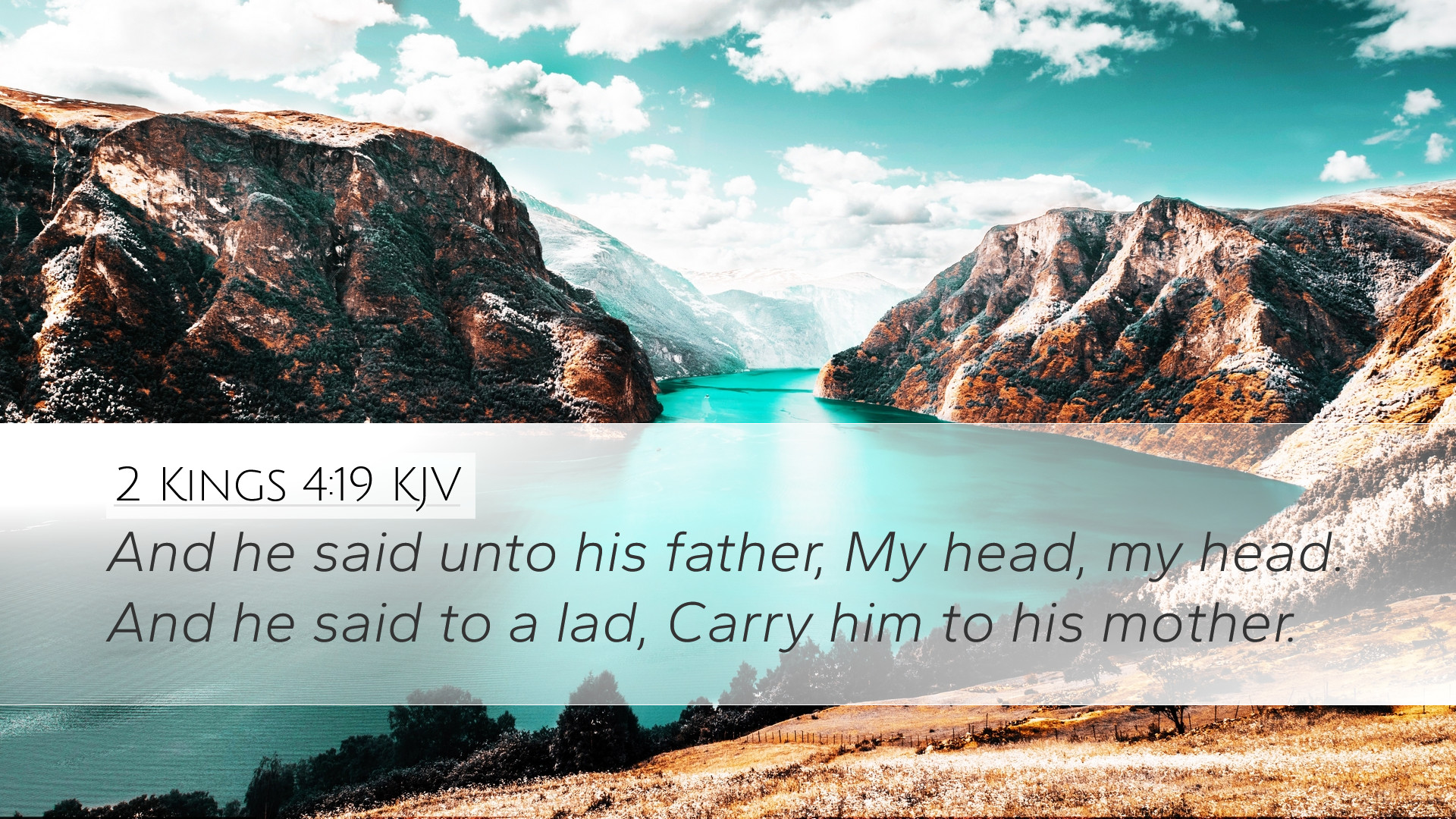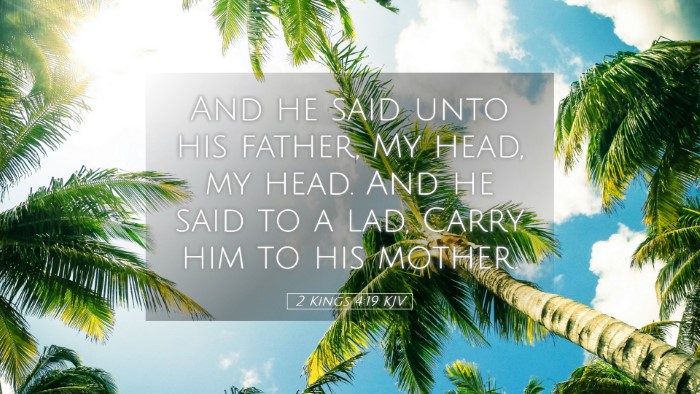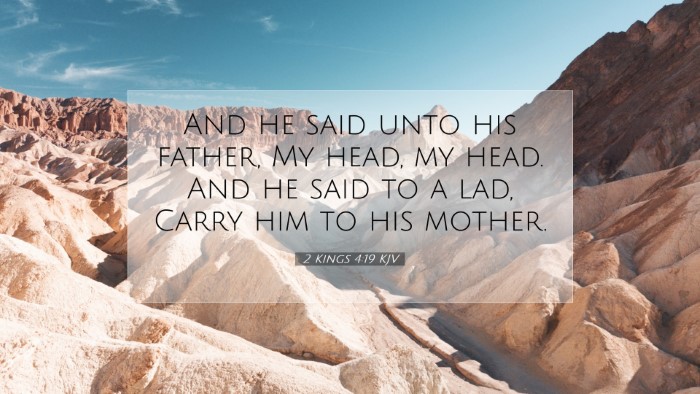Commentary on 2 Kings 4:19
Verse Text: “And he said unto his father, My head, my head. And he said to a lad, Carry him to his mother.” (2 Kings 4:19, KJV)
Contextual Background
This verse is situated within the narrative of Elisha’s ministry and his interactions with the Shunammite woman, who had shown hospitality to him. The passage begins with the miraculous birth of her son, born of her faith and Elisha’s prophetic word (2 Kings 4:16-17). The mother had previously been barren, and the gracious intervention from God through Elisha stands as a testament to His faithfulness to those who honor His servants.
Interpretative Insights
Emotional and Physical Distress
The cry of the boy, “My head, my head,” indicates a serious ailment. Elisha’s servant, Gehazi, is commanded to assess the situation, underscoring the urgency of the moment (Clarke). Such an expression of physical pain can serve as a metaphor for deeper spiritual issues. This moment can reflect on the fragility of life and health, reminding us of our dependency on God. The specifics of the boy's affliction are not elaborated, but the emotional turmoil it brings is palpable.
Parental Response
The father’s reaction, instructing a servant to take him to his mother, speaks to the maternal nurturing role traditionally held in biblical culture. The mother's connection to her child is profound, demonstrating the intensity of a parent's love and the instinctual drive to bring comfort and care in times of distress (Henry).
Symbolism of the Journey
The journey back to the mother can be seen as significant. It reflects that while earthly solutions (like sending the lad to his mother) may seem suitable, the ultimate resolution lies in divine intervention. This illustrates the need to return to God's arms (Barnes), signifying that genuine pain and despair are best brought before God through prayer and faith.
Theological Reflections
The events of this verse can lead to deeper theological reflections on life, pain, and divine sovereignty. There is a stark reality of suffering depicted, but it coexists with the promise of God’s presence and potential for healing. The mother's eventual response, her persistent action in seeking Elisha after her son has died (2 Kings 4:20-37), shows her faith and expectancy for miracles, reaffirming that a faith-filled life often faces trials but is anchored in hope (Clarke).
Applications for Ministry and Personal Reflection
For pastors and theological students, this passage encourages an exploration of how to navigate situations of crisis and loss within their congregations. Understanding the emotional weight carried by individuals who experience suffering is crucial for pastoral care.
- Empathy in Ministry: Like the Shunammite woman’s reaction to her son’s ailment, ministry often requires a deep sense of empathy and connection to those in distress. How we respond to someone's pain can either lead them closer to healing or further away.
- Faith Amidst Crisis: This narrative stresses the importance of maintaining faith even when faced with distressing circumstances. The mother’s approach to seeking Elisha serves as a model for turning to God’s servants and ultimately to God in times of trouble.
- Intercessory Prayer: The act of bringing the child to his mother speaks of intercession. It is essential to encourage prayer intercessors to remain faithful in lifting up the needs of others before God.
Conclusion
2 Kings 4:19 encapsulates profound truths about suffering, faith, and divine intervention. The simplicity of the boy's cry encapsulates the complexity of human experience, revealing both physical vulnerabilities and the spiritual breadth that comes from faith. As such, it highlights the necessity for believers to bring every concern before God, trusting in His perfect will and timing. Just as the Shunammite mother's faith and eventual actions lead to a resurrection of her son, so too can faith in God lead to restoration amidst our trials today.


